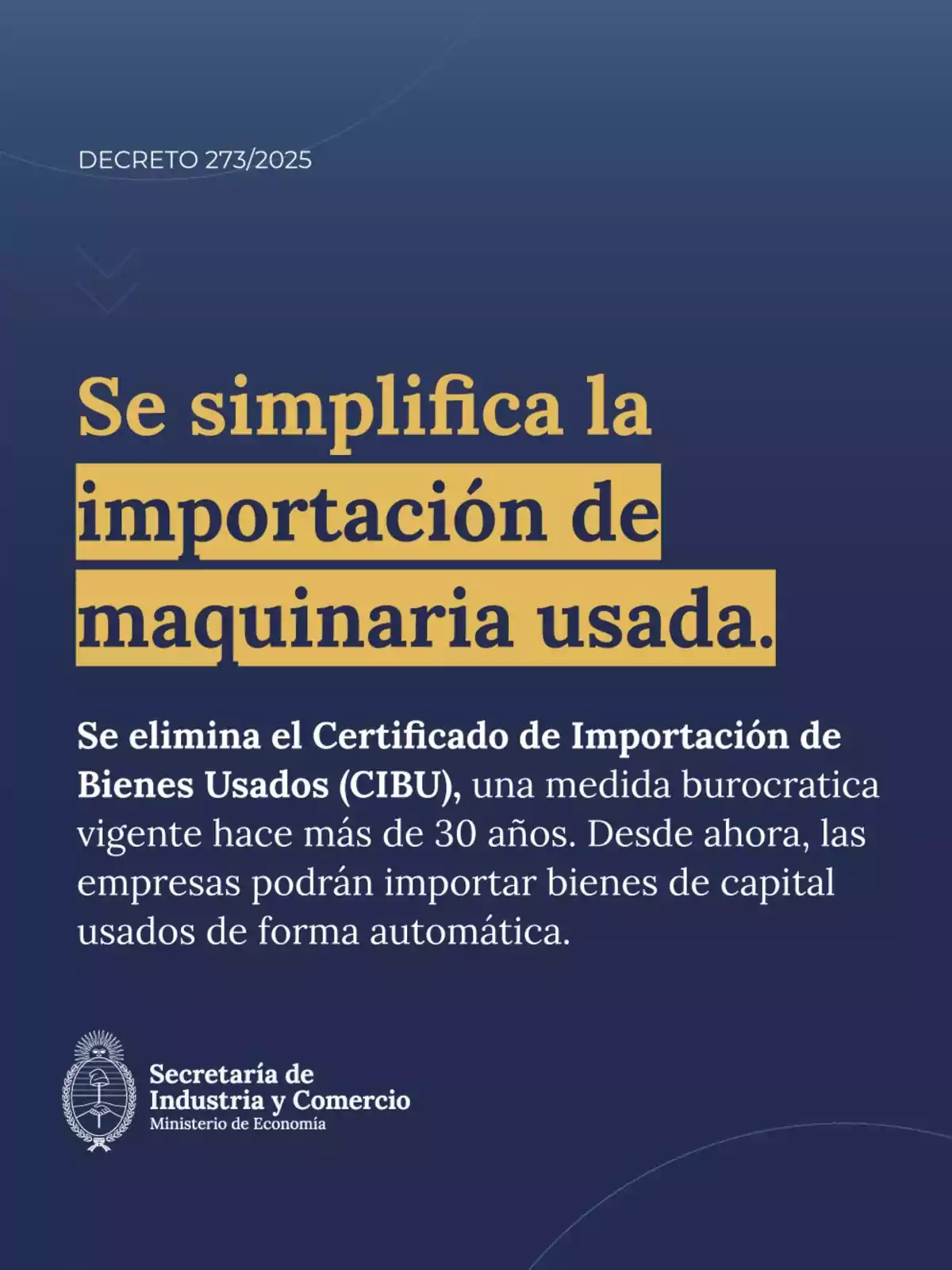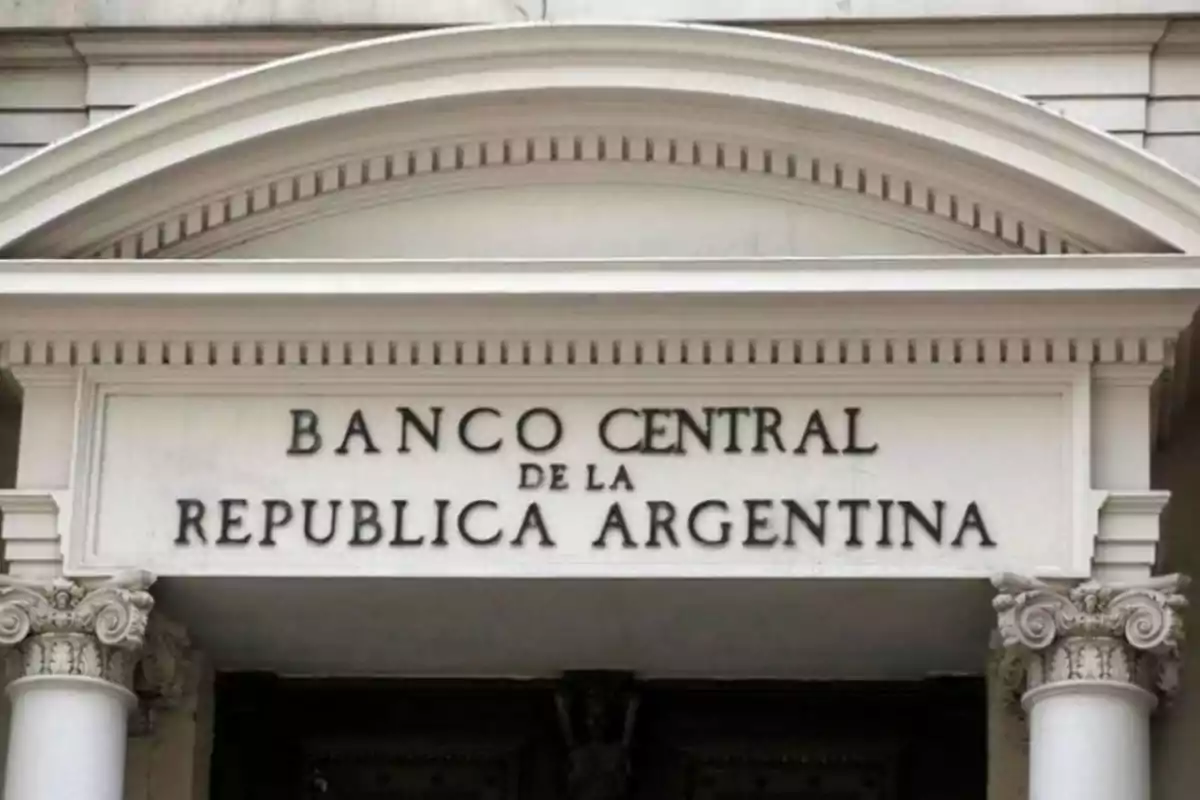
Reforms advance: the government deregulates agriculture and promotes financial opening
Obstacles were removed for yerba, grain trade, and access to the foreign exchange market was eased
Within the framework of the deregulation and economic modernization process driven by the Executive Branch, the national Government announced new measures aimed at eliminating bureaucratic obstacles and encouraging productive competitiveness in various strategic sectors. One of the main decisions was the repeal of the Certificate of Importation of Used Goods (CIBU), a requirement in place for more than 30 years, which conditioned the entry of used industrial machinery into the country.
As of Decree 273/2025, the need to process this permit is eliminated, allowing the automatic entry of used capital goods for multiple industrial activities. This change not only simplifies the logistical process for importers but also allows companies to access equipment at a lower cost, improving their investment capacity, especially in sectors where there are no competitive local production alternatives. The benefited sectors include the oil and gas industry, automotive, graphic, and agricultural machinery.

The elimination of the CIBU constitutes another step in the line of reducing restrictions imposed for economic reasons, in accordance with the provisions of DNU 70/2023. It also represents a significant advance for strategic sectors such as energy or mining, which will now be able to import used equipment more quickly and without conditions that limit their business decisions.
Meanwhile, in the agro-industrial sector, the Government continues with the removal of regulatory obstacles. Through Resolution 152/2025, the restrictions that limited the expansion of yerba mate production, a market characterized by its high domestic consumption and with broad export development possibilities, were lifted. The regulation, signed by the Minister of Economy Luis Caputo, eliminates the production quotas that were in place until now and that functioned as a state planning mechanism unrelated to market efficiency principles.

From an economic point of view, this deregulation allows producers, both large and small, to respond to market signals without interference. It also opens new opportunities to position Argentine yerba mate internationally, with significant growth margins in global markets.
Less bureaucracy and lower transaction costs for grain trade
Less bureaucracy and lower transaction costs for grain trade. In line with this objective, the elimination of the requirement to register in the Single Registry of the Agro-Food Chain (RUCA) for grain market actors was also made official, through Resolution 50/2025. This measure alleviates administrative burdens, eliminates regulatory redundancies, and promotes a more agile and predictable commercial environment.

The reduction of these indirect costs improves the sector's competitiveness and aligns with an economic policy strategy that prioritizes institutional efficiency and the freedom to operate within the current legal framework. By removing these obstacles, the flow of goods in the domestic market is facilitated, and greater participation of small and medium operators is encouraged.
The BCRA eases access to the foreign exchange market to attract investments
As part of the same opening process, the Central Bank of the Argentine Republic announced a relaxation in the conditions of access to the Free Exchange Market (MLC) for non-resident investors. From this decision, those who make new investments will be able to repatriate their capital without prior authorization, provided they have previously entered the funds into the country through formal settlement in the system.

This relaxation seeks to improve the regulatory framework for financial investment, creating more favorable conditions to attract capital to the local market. Investments will be subject to a minimum stay period of six months, in line with macroprudential criteria aimed at discouraging short-term speculative movements and strengthening the stability of the financial system.
In addition to facilitating capital repatriation, the measure could help Argentine assets meet the eligibility requirements of international financial indices, which would increase their visibility among large global funds and could translate into greater flows toward domestic instruments.
Another positive effect of this decision is the boost to the development of the futures market as a hedging tool against exchange rate risk. With greater access to the MLC and clearer rules, increased activity in this segment is expected, promoting liquidity, depth, and transparency in the formation of financial prices.
More posts: